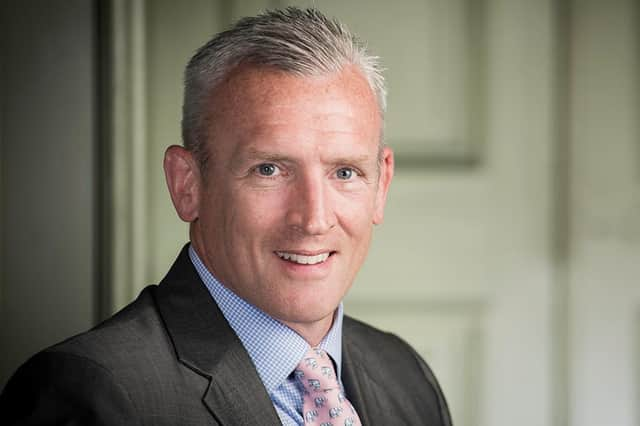It's an Advocate's professional duty to follow the cab rank rule - Roddy Dunlop


That year, Robert Batchelor, a shore porter in Dundee, died. One of Robert’s sons, Alexander, was out of the country and wrongly believed to be dead.
Upon returning, Alexander attempted to claim his share of his late father’s estate and engaged solicitors, who in turn instructed an Advocate, George Handasyde Pattison.
Advertisement
Hide AdAdvertisement
Hide AdAlexander Batchelor became dissatisfied with their work and sued both solicitors and Advocate. In sustaining what was in effect an argument that the Advocate was immune from suit, Lord President Inglis explained as part of the reason that an Advocate “is not at liberty to decline, except in very special circumstances, to act for any litigant who applies for his advice and aid”. Whilst the immunity has since become very much diluted, the rule against declining instructions (now known as the “cab rank rule”) endures. Put simply, and other than in special circumstances, members of the Faculty of Advocates cannot refuse a client who has legal aid or who tenders payment of a reasonable fee.


In October, the Home Secretary and Prime Minister gave high-profile speeches condemning“lefty lawyers”, “activists” and “do-gooders”. Their sins? Acting for asylum seekers. The legal profession across the UK has been quick to condemn these remarks, and I have been ready to add my voice on behalf of the Faculty.
The comments fail to understand the cab rank rule. They suppose that political conviction motivates lawyers to bring cases that oppose or challenge government policy. The cab rank rule means it is an Advocate’s professional duty, regardless of personal beliefs, to accept any client who has a statable case. Members of Faculty may hold and express views in a personal capacity like anyone else. But our professional lives require detachment from such views. The cab rank rule separates the personal from the professional, and ensures the most vulnerable in society have legal representation, independent of the state. Government should be our ally in maintaining that independence.
It is not uncommon for the public to have to be reminded that counsel may not decline instructions. In 2019, this arose during the trial of the murderer of Alesha MacPhail. The defence and prosecution worked with utmost professionalism throughout one of the most horrifying trials in recent Scottish history. In his judgment, Lord Matthews recognised this professionalism but also felt it necessary to reiterate the rules that govern lawyers’ work. In the legal profession, we need to do more to counteract such misconceptions. It is essential that everyone, no matter how vulnerable (as are many asylum seekers), and no matter how worthy of revulsion (as was Alesha’s murderer), can access representation.
Populist attacks on the legal system have not been reserved for lawyers. Even the judiciary, constitutionally and critically independent of the state, has come under attack. Judges who act independently of the state are not “Enemies of the People”, nor are they giving vent to political bias: they are upholding the rule of law. The independence of the judiciary and legal profession are fundamental to the rule of law, which is in turn fundamental to a free democracy. I was heartened to see that Robert Buckland, the Lord Chancellor, appears to understand this. He must, however, convince his cabinet colleagues.
Violence against lawyers is not common in Britain. But we must never take that security for granted. Since November, the world has watched an American president abuse the legal system in an attempt to undermine a democratic election. A few years ago, this would have been unthinkable. I want to believe such actions are aberrations rather than the first signs of a distressing trend towards an increasingly populist society. Condemnations of “lefty lawyers”, however, provide little assurance.
The Prime Minister and Home Secretary’s comments have also encouraged a wave of online abuse directed at lawyers. Everyone deserves to be able to work without fear of abuse and intimidation. This is especially important when their work ensures the course of justice. Even when the threat of violence may not be at hand, the threat of online intimidation is growing.
I am glad to live and work in a democracy in which, in general (and outwith the predations of COVID-19) we enjoy many freedoms. An essential part of these freedoms is that our legal system be kept independent and impartial, for the benefit of all. The cab rank rule has been part of that impartiality since at least the 19th century. In the 21st century, government ministers should uphold that impartiality rather than threaten it.
Roddy Dunlop is Dean of the Faculty of Advocate